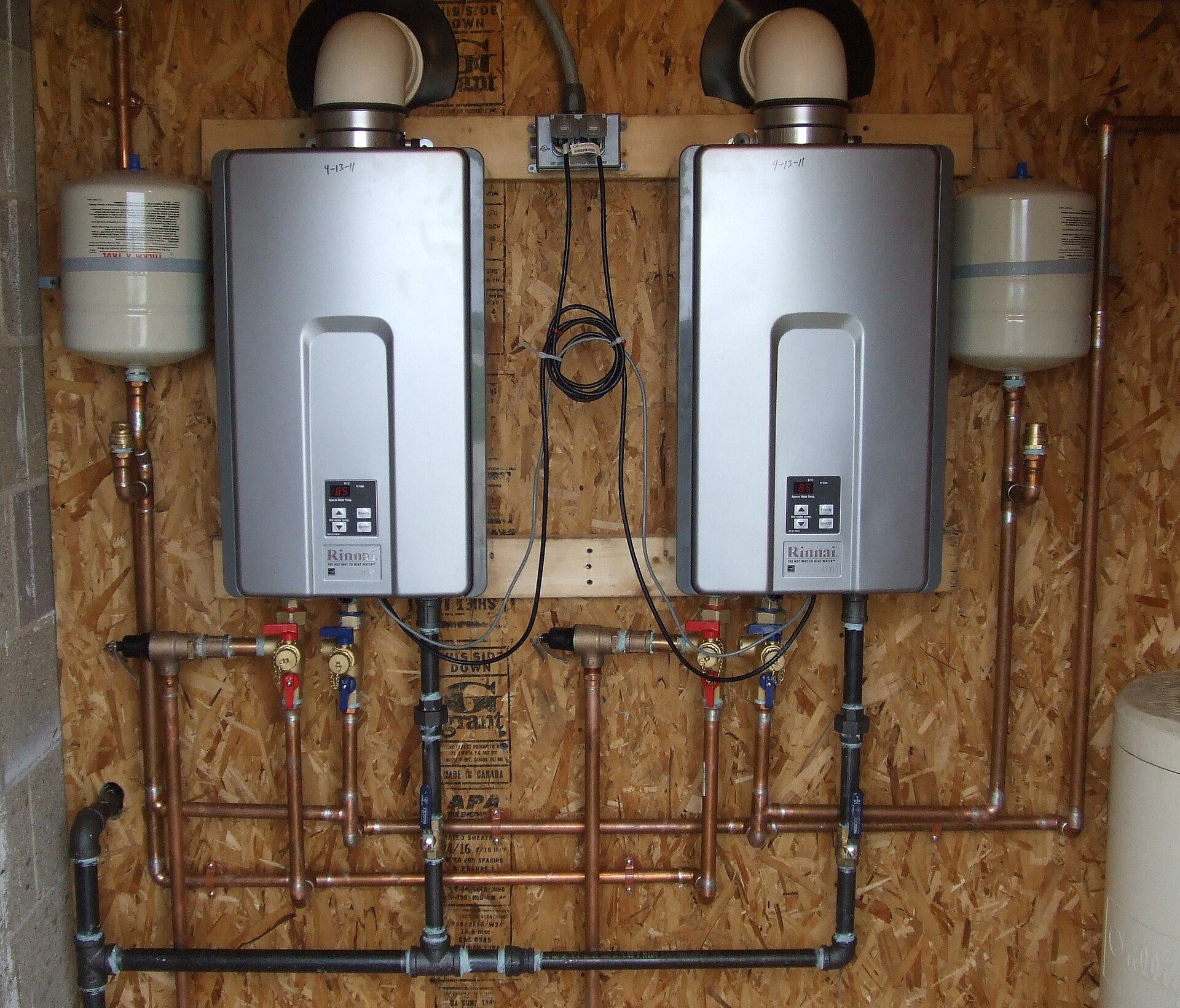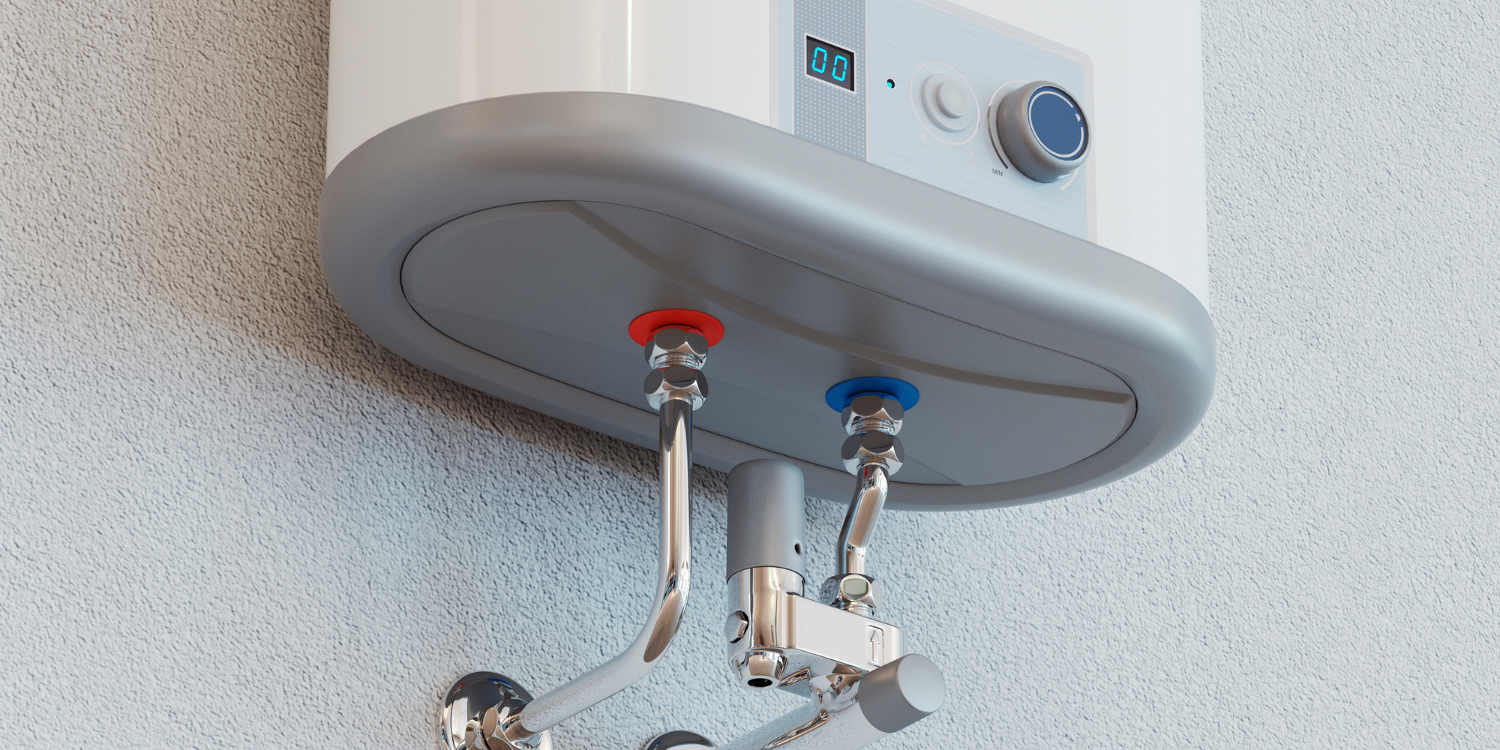Centering On Energy Savings To Space Efficiency: The Benefits Of Tankless Water Heaters
Centering On Energy Savings To Space Efficiency: The Benefits Of Tankless Water Heaters
Blog Article
Have you been looking for facts about Six Benefits of a Tankless Hot Water Heater?

In a world where convenience and efficiency preponderate, it's no surprise that property owners are constantly in search of smarter methods to manage their home's energy consumption and comfort. One development that has steadily obtained appeal is the tankless water heater. But exactly what makes these systems stick out from the conventional tank-based models most of us matured with? Let's dive in and check out the benefits of tankless water heaters, assisting you determine if it's time to make the button in your house.
Intro
Image this: you enter the shower after a lengthy day, anticipating a comforting cascade of hot water, only to be greeted by icy droplets since the last person used everything up. Noise acquainted? Traditional water heaters store a set amount of hot water, implying you go to the mercy of that tank's supply. Tankless systems, on the other hand, warmth water as needed. Say goodbye to going out mid-shower, no more wrestling with timetables just to guarantee hot water is offered.
Recognizing Tankless Water Heaters
What Are Tankless Water Heaters?
Tankless hot water heater, sometimes called on-demand or instant water heaters, offer hot water just as it's needed. As opposed to saving gallons of pre-heated water, these systems kick into action the minute you activate the faucet. Water travels through a warm exchanger, heating up in real-time, meaning you obtain an undisturbed circulation of hot water without the need for a huge tank resting idly by.
Just how Do They Vary from Traditional Equipments?
Conventional heating systems hold a reservoir of warm water, utilizing energy to keep that container at a regular temperature. Tankless units eliminate the standing supply, cutting down on thrown away power and the bulky impact of a big cylinder. Basically, you're updating from a "stockpile" attitude to a "made-to-order" strategy.
Typical Sorts Of Tankless Systems
Tankless hot water heater generally can be found in two varieties: gas and electric. Gas versions often tend to deliver greater circulation prices, perfect for bigger households, while electrical designs often offer smaller sized homes and are generally much easier to set up. Additionally, some systems are made for point-of-use (offering one fixture) while others can manage the entire home's warm water requirements.
Key Benefits of Tankless Water Heaters
Power Effectiveness and Cost Financial Savings
No more warming a giant storage tank's worth of water and maintaining it toasty throughout the day. Tankless heating systems decrease standby energy losses, which can lower utility bills. While the first cost might be greater, the long-lasting cost savings usually warrant the financial investment.
3. Space-Saving Design
If your home is short on storage, eliminating the bulky storage tank liberates important room. Tankless units are compact and can typically be installed on walls, tucked away in corners, or installed in limited energy storage rooms without monopolizing the entire room.
4. Longer Lifespan
A well-maintained tankless hot water heater can outlive its tank-based cousin. Traditional storage tanks might last 10-15 years, while tankless versions can keep downing along for twenty years or more, making them a strong financial investment in time.
1. Limitless Warm Water Supply
Ever had to arrange showers so every person obtains their fair share of hot water? With tankless, that becomes a distant memory. As long as the heating system's circulation ability isn't gone beyond, you can take back-to-back showers without developing into a popsicle.
5. Improved Water Quality
Storing water in a container can sometimes bring about sediment build-up or a slightly "off" preference. With tankless systems, fresh water is warmed instantly, lowering the chances of debris buildup and potentially providing cleaner-tasting water.
Considerations Before Changing
Though the benefits are engaging, it's important to take into consideration a couple of aspects before completely dedicating.
Examining Your Home's Water Use Patterns
If your family at the same time uses multiple components with high hot water need, make certain the system's flow price meets your demands. Recognizing your usage patterns aids you choose the best dimension and kind of tankless heating system.
Maintenance and Treatment Tips
Tankless systems are fairly reduced maintenance, however they aren't set-it-and-forget-it devices.
Regular Cleansing and Descaling
Difficult water minerals can develop in the warmth exchanger, affecting effectiveness. Regular descaling (commonly advised yearly) maintains the device running at peak performance.
Yearly Specialist Evaluations
A yearly checkup from an expert makes sure small problems are captured early. They'll evaluate the system's performance, search for leaks, and assist maintain optimal efficiency.
Preliminary Financial Investment Expenses
Tankless heating units normally include a greater in advance price tag. In between the device itself and prospective setup adjustments, the initial cost could provide you sticker shock. But bear in mind to watch it as a long-lasting investment.
Installment Demands
Depending upon your home's facilities, you might require additional electric capability or gas line upgrades. Ensure you recognize the setup demands and seek advice from a professional to prevent shocks.
Guaranteeing Appropriate Air Flow
For gas versions, proper air flow is vital to securely get rid of exhaust gases. Make sure airing vent systems are tidy and properly mounted to avoid any possible security risks.
Contrasting Different Brands and Designs
Not all tankless hot water heater are produced equivalent.
Investigating Dependable Makers
Seek trusted brands with a history of generating quality units. A reliable supplier commonly supplies better consumer support and longer guarantees.
Installment: DIY or Specialist?
While some homeowners cherish tackling tasks themselves, tankless setup may not be the best time to break out the tool kit.
Pros and Cons of DIY Installment
A DIY set up can conserve cash, however it comes with risks. Wrong installation can lead to inadequacy or safety and security problems. If you come in handy and have experience, it could be practical-- however proceed with care.
Reading Evaluations and User Comments
Customer testimonials and comments from next-door neighbors or buddies who have actually gone tankless can supply beneficial understandings. Often, real-life experiences can be a lot more telling than marketing sales brochures.
When to Call a Specialist Plumber
For the majority of, calling a pro ensures every little thing's done appropriately. A professional plumber recognizes neighborhood codes, sizing needs, and venting parameters, decreasing the threat of incidents.
Making best use of Performance
You've invested in a tankless system-- now optimize its efficiency.
Optimum Temperature Setups
Most people set their devices between 120-140 F. Readjusting the temperature can enhance convenience and savings. Experiment to find a wonderful place that doesn't lose power.
Pairing with Low-Flow Fixtures
Wish to stretch your system's capacities? Consider installing low-flow showerheads and faucets. They minimize water use, permitting your tankless system to deliver a stable stream of warm water without stressing.
Ecological Influence
Tankless hot water heater straighten with greener living objectives.
Lowered Carbon Footprint
By using less energy and just home heating water as required, tankless systems can decrease your home's carbon impact, lowering your ecological influence.
Saving Natural Resources
Less energy consumption and much less wasted warm water equate into fewer natural deposits being used, an environmental win-win.
Who Profits A Lot Of from Tankless Heating units?
The charm of tankless heating systems is that they can fit a range of houses.
Huge Families vs. Single Passengers
Big family members might love the unlimited hot water supply, while single occupants appreciate the power savings from not heating a whole container for simply a single person's morning shower.
Homeowners with Minimal Area
If your home is short on square video footage, losing the cumbersome container liberates room for other essentials-- or maybe just a lot more breathing space.
Eco-Conscious Customers
Going tankless aligns with environmentally friendly values, ensuring you're not wasting energy or sources.
Future Patterns in Tankless Hot Water Heater
The globe of home devices is ever-evolving, and tankless hot water heater are no exemption.
Innovations in Innovation
R&D is regularly enhancing warm exchangers, making systems more reliable and durable. Future versions could be even quieter, a lot more small, and better suited for varying climates.
Smart Home Assimilation
Visualize changing your hot water heater's temperature level via an app or obtaining upkeep notifies on your phone. As wise home tech breakthroughs, we'll see more connectivity and comfort.
Verdict
Choosing a tankless water heater is more than just upgrading your home's hot water system; it's buying long-term convenience, power performance, and a greener way of living. By considering your household's water usage, bearing in mind installment demands, and dedicating to routine upkeep, you can delight in a steady stream of hot water without the baggage of a cumbersome tank. As modern technology advances, you can anticipate also smarter, more effective tankless options that not just make your life less complicated yet also profit the planet.
Six Benefits of a Tankless Hot Water Heater
Continuous hot water. Large families know what a pain it is to hop into the shower and get blasted with cold water. With a tankless hot water heater, this doesn't happen as long as you install the right size tank. Even if you don t have a large family, a tankless hot water heater allows you to use multiple appliances at once without running out of hot water. Reduced energy bill. Because tankless heaters are essentially "off" when the water tap is not on, they use less energy overall. In fact, an ENERGY STAR-qualified tankless hot water heater can use 25-40% less energy than a conventional water heater, and save the average family $100 or more annually. Longer life. Get more bang for your buck with a greater lifespan. Specifically, conventional hot water heaters last about 10-13 years compared with up to 20 years for a tankless hot water heater. Less space. Did you know that tankless hot water heaters can be hung on a wall almost anywhere in your home? Plus, at 28" tall by 20" wide and 10" deep, a tankless hot water heater takes up a lot less space than a conventional hot water heater, which is 60" tall and 24" wide. Good for the environment. In addition to reducing the amount of energy used, most propane-fired tankless water heaters are made of recycled materials. Many conventional tanks, on the other hand, go directly to the dump once they've served their purpose. High safety ratings. Conventional water heaters are "always on" and thus pose safety risks more often than do tankless heaters, which only operate when warm water is needed. https://www.rotorooter.com/blog/water-heaters/six-benefits-of-a-tankless-hot-water-heater/

As an avid reader on , I thought sharing that piece of content was a good idea. Please set aside a second to share this page if you enjoyed reading it. Kudos for your time. Kindly visit our website back soon.
Click Report this page